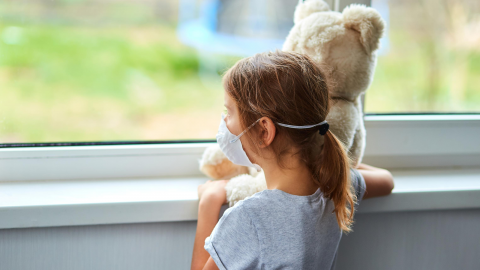
Submitted on Tue, 08/04/2020 - 15:24
Dear Parents,
Recently, many parents have called for advice on what is considered an exposure to COVID-19 and if their child should be tested.
As there is currently widespread community transmission and more activities outside the home, the potential for exposure has increased. We hope you find the following information helpful. Please keep in mind that as new information becomes available recommendations may change.
What is an exposure?
An exposure is contact with someone who has COVID-19 without a face covering, for at least 10-15 minutes at less than 6 feet distance. It appears that people without symptoms can also spread the virus.
Should my child get tested if he or she is exposed?
When someone is exposed to the virus that causes COVID-19. it can take 2 to 14 days to develop symptoms. A negative test during that period of time could mean that the person is not infected or that he or she has not developed symptoms yet. Tests can become positive two days prior to development of symptoms, or days into the illness. The most important action to take after an exposure is to quarantine that person and watch for signs of illness. Per current recommendations, a person without symptoms needs to quarantine for fourteen days after their last exposure. Please follow this link to the CDC for useful information with different scenarios on length of quarantine.
What tests are available?
There are diagnostic tests that can tell you if your child has the infection now, and there are antibody tests that may tell you if your child has had the infection in the past.
The two diagnostic tests are: molecular and antigen tests.
The molecular test is very accurate. This test involves taking a nasopharyngeal sample. Results are available in one to two weeks.
The antigen test is highly accurate if positive but a little less accurate then the molecular test if negative. It is taken with a nasal swab. Results are available within 24 hours.
Antibody tests may inform you if your child has had the infection in the past. It takes one to three weeks for our body to make antibodies to COVID-19. It is not known at this time if the antibodies protect against a new infection or for how long they last.
What can I do to protect my family?
Maintain at least 6 feet distance from others, avoid crowds, wear a face covering when in public, wash your hand often with soap and water (or hand sanitizer that contains at least 60% alcohol), do not touch your face unless you just washed your hands, and frequently clean and disinfect frequently touched surfaces.
Please remember to visit our website at intpeds.com. We have compiled valuable information under our COVID-19 tab, including our Reliable Information page.
Respectfully,
Interlachen Pediatrics
HELPFUL LINKS
2019 Novel Coronavirus (COVID-19)
Article from healthychildren.org, the parenting site from the American Academy of Pediatrics
What Counts as COVID-19 exposure?
Article from mdanderson.org
Should Your Child Be Tested for COVID-19?
Article from healthychildren.org, the parenting site from the American Academy of Pediatrics.
Information from the CDC on testing
How to Protect Yourself and Others
Information from the CDC
What to do If You Had an Exposure
Additional information from the CDC
People with Certain Medical Conditions
Article from CDC regarding persons who are at increased risk for complications from COVID-19.

